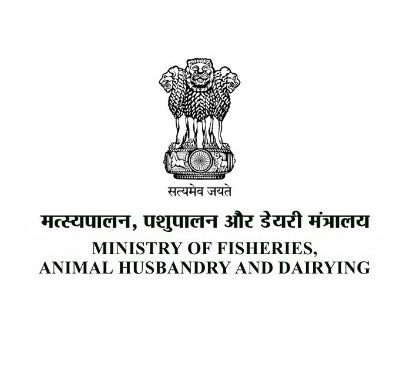
National Livestock Mission (NLM) proposes to bring a sharp focus on entrepreneurship development and breed improvement in rural poultry, sheep, goat, and piggery including feed and fodder development. The rural Poultry Entrepreneurship component will give direct employment to 1.5 lakh farmers and 2 lakh farmers will be directly benefitted from sheep goats and poultry development. About 7.25 lakh high-yielding animals will be covered under risk management benefitting 3.5 lakh farmers. Fodder and fodder seed availability in the country will be increased by many folds through the creation of fodder entrepreneurs.
The livestock Census & Integrated Sample Survey component will support states for undertaking Livestock Census and for bringing out production estimates of milk, meat, egg and wool which is crucial for formulating strategies for holistic development of the livestock sector.
Livestock Health and Disease Control will be implemented with the aim to reduce risk to animal health by prophylactic vaccination against diseases of livestock and poultry, capacity building of Veterinary services, disease surveillance and strengthening veterinary infrastructure. Under the scheme, during the next five years, Mobile veterinary clinics will be established in the country to deliver animal health services at the doorstep of 10 crore farmers engaged in Animal Husbandry, scheme will prevent annual loss to the farmer’s amount to Rs. 8900 crore due to PPR in sheep and goats and Rs 200 crores due to classical swine fever in pigs.
The dairy cooperatives and Farmer Producer Organisations engaged in dairy activities will be provided with a 4% interest subvention for meeting their working capital requirements. During the COVID period, thanks to this scheme, milk procurement in the cooperative sector continued with very little fluctuation because the cooperatives were able to convert the un-purchased quantities into skimmed milk powder (SMP) with the help of these subsidized working capital loans. The scheme will benefit 2 crore farmers members linked with dairy cooperatives.
The implementation of all these schemes will ensure easy credit flow to livestock and dairy farmers through interest subvention and capital subsidy, create huge opportunities and multiplier effects for employment and livelihood through entrepreneurial activities across the livestock sector, boost export of meat, poultry & dairy products, accelerate breed improvement in cattle and other livestock species through technological interventions resulting in more productivity in the sector. This will pave the way towards self-reliance, achieving the goals of ATMANIRBHAR BHARAT.
Department is expecting that, these realigned schemes would lead to multiplication of elite animals of indigenous breeds and increased availability of indigenous stock, increased coverage of Artificial Insemination from 30% to 70%, identification of 30.2 crore animals with Unique Identification Number (UID), 53 lakh assured pregnancy through IVF and Sex Sorted Semen technology. The introduction of sex-sorted semen will further enhance the productivity of bovines through the production of only female calves with more than 90% accuracy. This will also help in managing stray cattle by reducing the number of male animals. The realigned scheme will help in improving per animal productivity like meat, milk, egg and wool from the present level of productivity. An increase in productivity will help in the production of more meat for the domestic market and export market. Implementation of PPR and CSF control program would help in the eradication of the diseases of sheep, goat and pig respectively from the country which will further prevent the annual loss of Rs. 8900 crore and Rs. 200 crore due to PPR in sheep and goat and Classical Swine Fever in pigs. These schemes will also create 34 lakh liter per day additional milk procurement capacity covering 47000 villages in the country.
The financial commitment of Rs. 9800 crore by the Government of India over next 5 years starting 2021-22 for these schemes would leverage a total investment of Rs. 54,618 crore in livestock sector including share of investments by State Governments, State Cooperatives, Financial institutions, External funding agencies and other stakeholders.
Disclaimer: We donot claim that the images used as part of the news published are always owned by us. From time to time, we use images sourced as part of news or any related images or representations. Kindly take a look at our image usage policy on how we select the image that are used as part of the news.


